Continuing the Legacy
Your Paniolo Preservation Society is an active, thriving community of Hawai‘i’s farming and ranching families, friends and supporters. We’re honored to work with other livestock organizations, like the Hawai‘i Cattlemen’s Council (HCC), and the Cattlemen’s Associations across the islands, to keep our paniolo heritage alive and well.
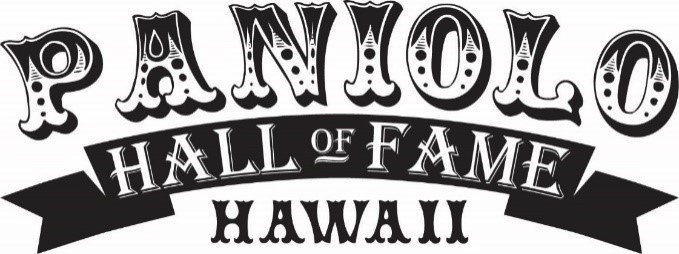
On Saturday, November 16, we’ll join HCC and others in a Celebration Luncheon for the Paniolo Hall of Fame Class of 2019 inductees. The ceremony begins at 12:30 p.m. with lunch to follow at 1:30 at Waikoloa Beach Marriott Resort & Spa. The public is invited to attend, with advance registration required at https://book.passkey.com/go/paniolohof2019. According to the HCC website, “The Paniolo Hall of Fame was initiated by the Oʻahu Cattlemen’s Association in 1999 to recognize yesterday’s and today’s paniolo statewide who have contributed to keeping Hawaiʻi’s paniolo heritage alive, and to honor those who made the paniolo culture legendary.”
Paniolo Hall of Fame Class of 2019
Harriet “Haku” Baldwin
1913-2003
Haleakalā Ranch, Maui
James Kaleima‘ema‘e “Palaika” Brighter
1871-1947
Molokai Ranch, Molokai, and Parker Ranch, Hawai‘i
Alex B. Franco
Maui Cattle Company, Maui
James A. Gomes
Ulupalakua Ranch, Maui
Adam Scott Hai Sr.
1917-1983
Kaupo Ranch, Maui and Kahuā Ranch, O‘ahu
Ephraim Palaima Hai
1914-1999
Kahuā Ranch, O‘ahu
Merton G. Kekiwi
Kaonoulu Ranch, Ulupalakua Ranch, Maui
John Kalaniopu‘u “John Samoa” Lekelesa
1908-1987
Parker Ranch, Hawai‘i
Michael N. Purdy Sr.
Ulupalakua Ranch, Maui
Clarence Stanley Rapoza
Palani Ranch Co., Lanihau Ranch, Hawai‘i
Richard M. Schultz II
Honomalino Ranch, Daleico Ranch, Hawai‘i
Four members of the class are Hawai‘i Island cowboys, representing Parker Ranch in Waimea, Lanihau Ranch, Palani Ranch, and Honomalino Ranch in Kona.
John Kalaniopu‘u (John Samoa) Lekelesa lived his whole life in Waimea, and his family attended Imiola Congregational Church where his father John (a Samoan) was a minister. John Samoa started work at Parker Ranch in 1931 at the Humu‘ula Sheep Station, moved over to the Cowboy Gang, and became gang foreman in 1950. He retired in 1970, after almost four decades of strong service. He and wife Hanna (Purdy) have a son and two daughters, three grandchildren and a great grandson.
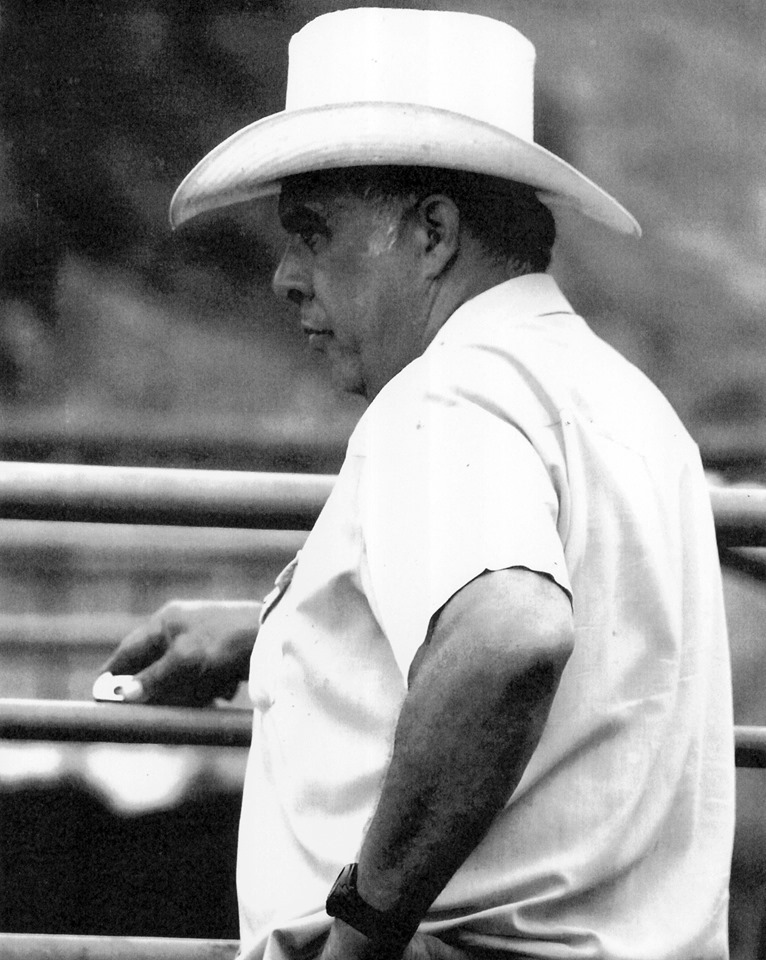
Clarence Stanley Rapoza – Paniolo Hall of Fame 2019
Clarence Stanley Rapoza was born and raised on Palani Ranch, and served as its livestock manager for over 25 years. He attended college and meat cutting school in California, and came home to Kona in 1983 to help his dad at Palani Ranch and the Rapoza’s 2,000-acre Lanihau Ranch, which he continues to manage. An Angus breeder and strong supporter of local grass-fed beef, Clarence is also a talented saddle maker, and donates many of his saddles to charity auctions. He’s also a baker—and led the design and construction of Kona Historical Society’s authentic Portuguese bread oven.
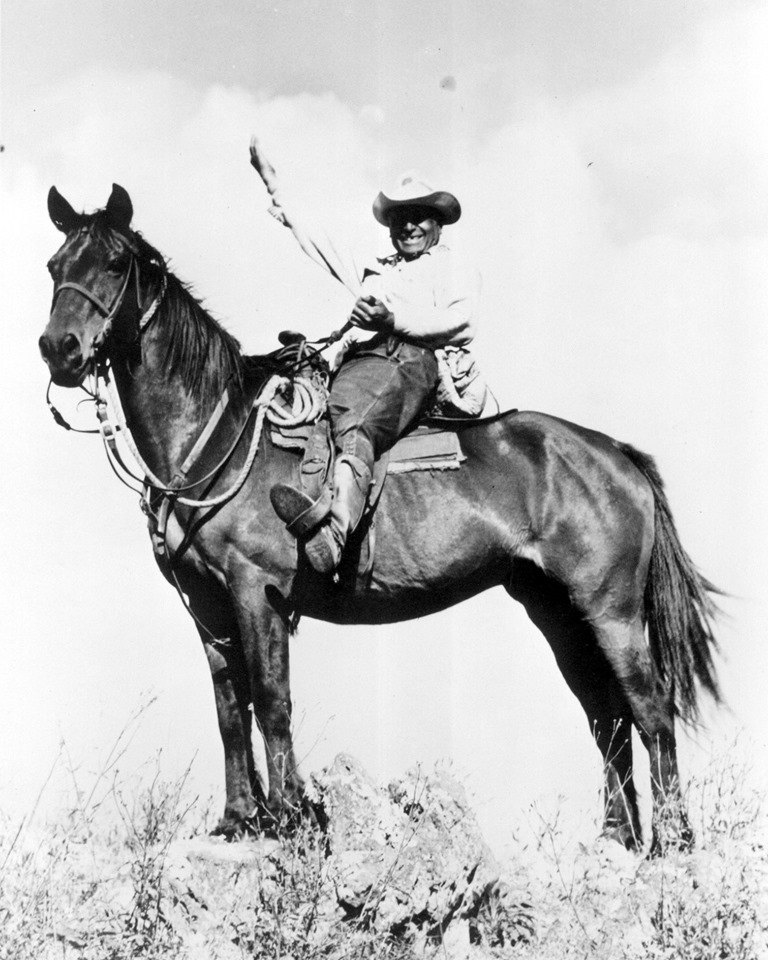
James Kaleimaʻemaʻe Palaika Brighter – Paniolo Hall of Fame 2019
James Kaleima‘ema‘e Palaika – Born in Waikapū, Maui in 1871 to William Wadsworth and Elizabeth Edmonds, James ran away from home at age 14 renouncing his family heritage. By canoe, he found his way to Moloka’i. At the time, A.W. Carter owned American Sugar Company which became Moloka‘i Ranch where James was (or became) a standout ranch hand.
In 1899, Carter assumed trusteeship of Parker Ranch. He brought three ranch hands to Waimea, one of whom was James Kaleima‘ema‘e, who for personal reasons, refused to divulge his complete name. Carter offered to give him an English surname, Brighter, that he felt reflected his leadership qualities.
Assigned to the revered Cowboy Gang, James was welcomed by the kama‘āina folks for his quiet and industrious nature. The native Hawaiian community especially respected James and “Hawaiianized” his given surname, Brighter to “Palaika.”
With World War I looming, Carter anticipated the global need for cavalry and draft horses, pack and draft mules. He enrolled Parker Ranch as a Remount Station and chose Palaika as a project leader, a move that would ensure success. Palaika left an indelible mark on what a Parker Ranch horse represented.
Ranch men of Palaika’s era regale his many achievements. Nearly legendary is the description of a roping accident in Makahilinu‘u in which Palaika carried Carter on his back to safety, five miles makai of the tragic mishap.
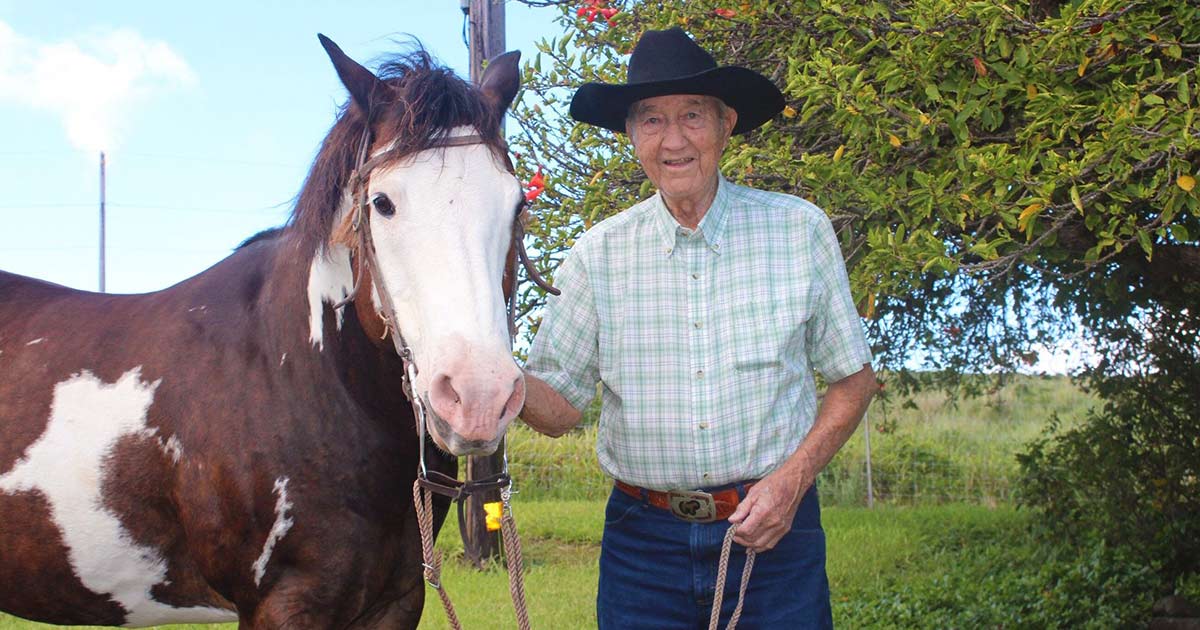
Richard M. Schultz II – Paniolo Hall of FAme 2019
Originally from Honolulu, Richard M. Schultz II moved to Ohio with his family when he was six years old, and his father was looking for work. He came back to O‘ahu to attend high school, and started working with horses at the Gomes family’s riding academy.
He studied animal science at UC-Davis and returned home in 1953 with wife Florence, who was also studying animal science. Richard went to work at a feed store, packing feed into 100-pound bags, and when he learned of possible work on Hawai‘i Island, he came to Kona to run a coffee farm. He got to know Honomalino Ranch Manager Robby Hind II, who asked Richard to take his place when he moved on to McCandless Ranch. A few years later, Richard helped his friend start up Daleico Ranch on 240 acres in Ka‘ū, where he and Florence stayed 44 years, which he calls the happiest of his life.
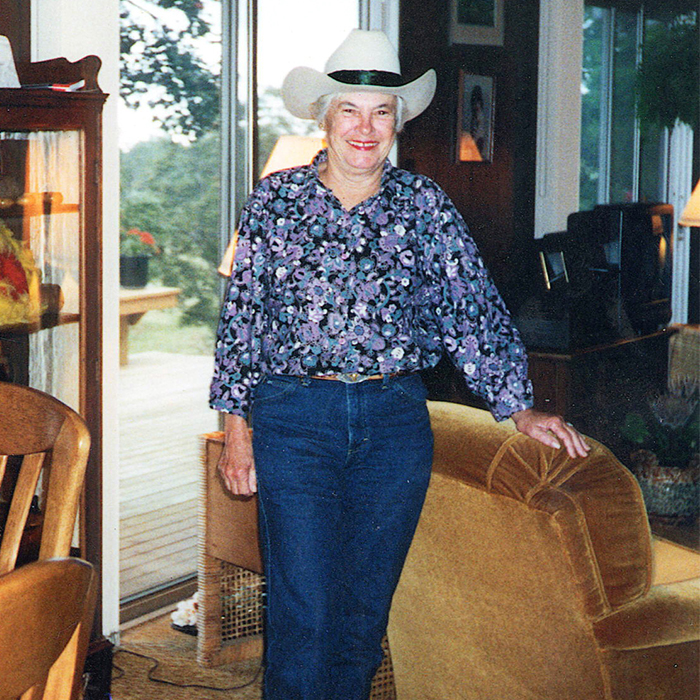
Florence Schultz – Paniolo Hall of Fame 2002
A first, Richard joins Florence (Class of 2002) as the first husband and wife to both be inducted into the Paniolo Hall of Fame.
